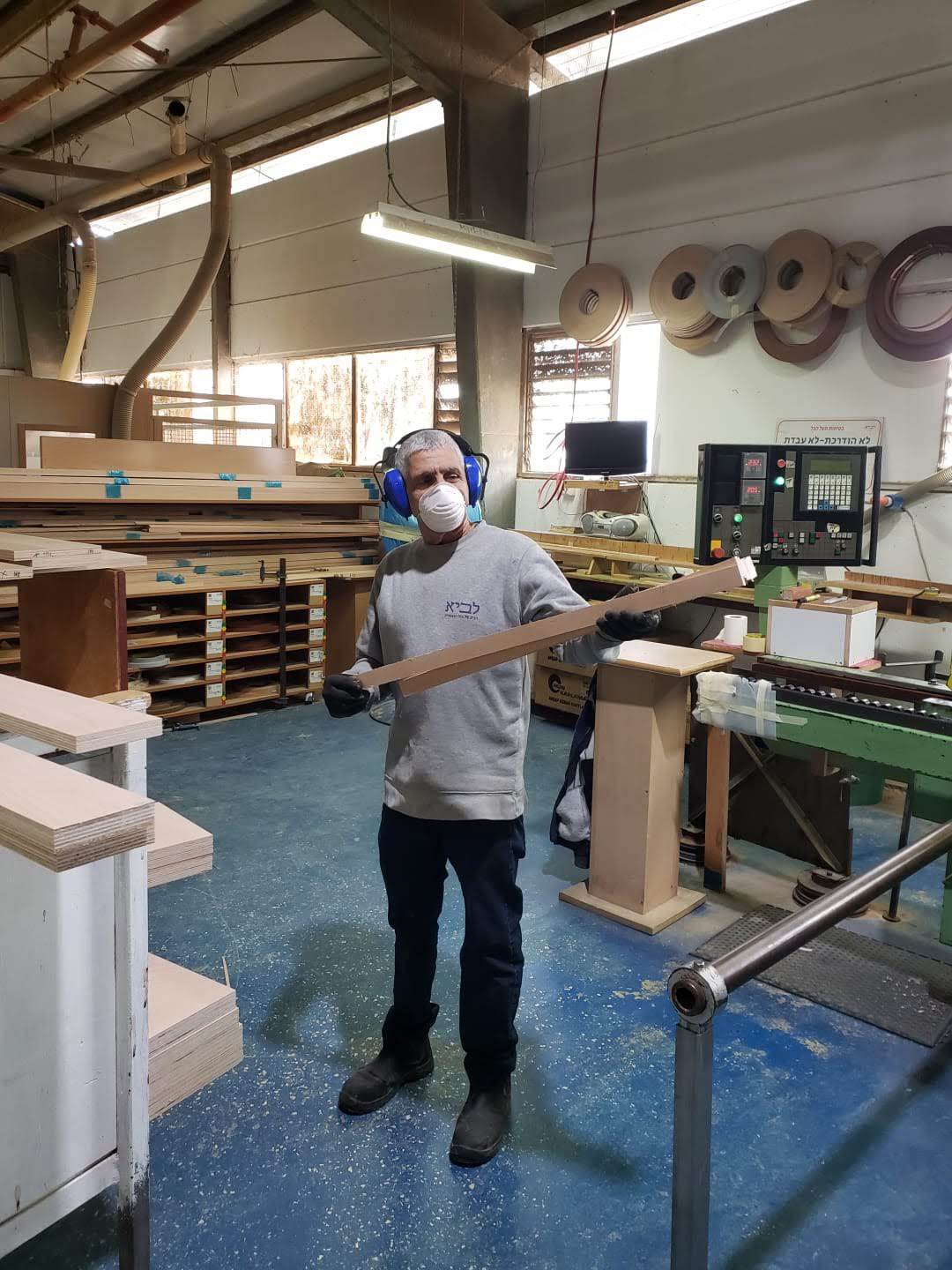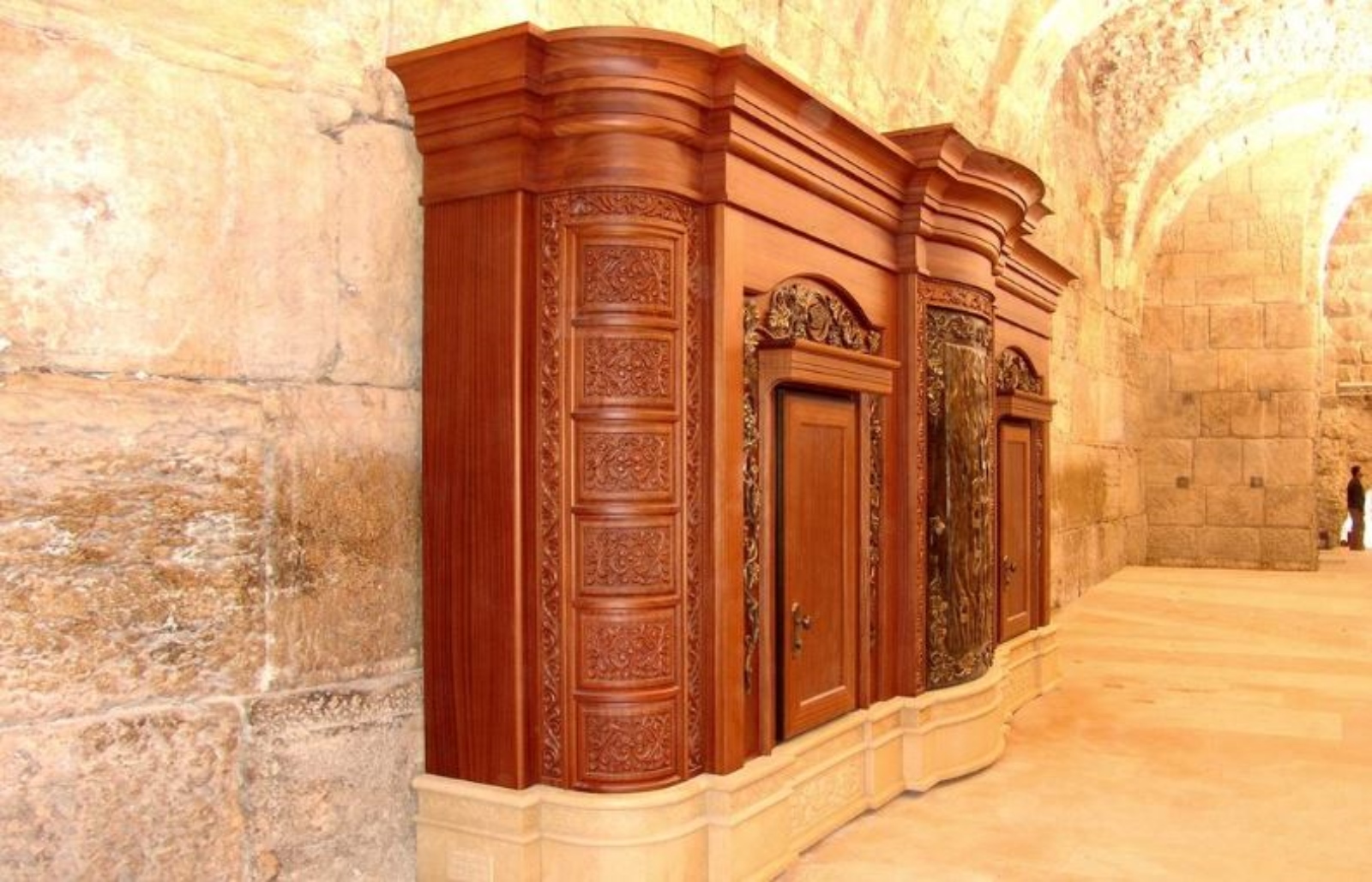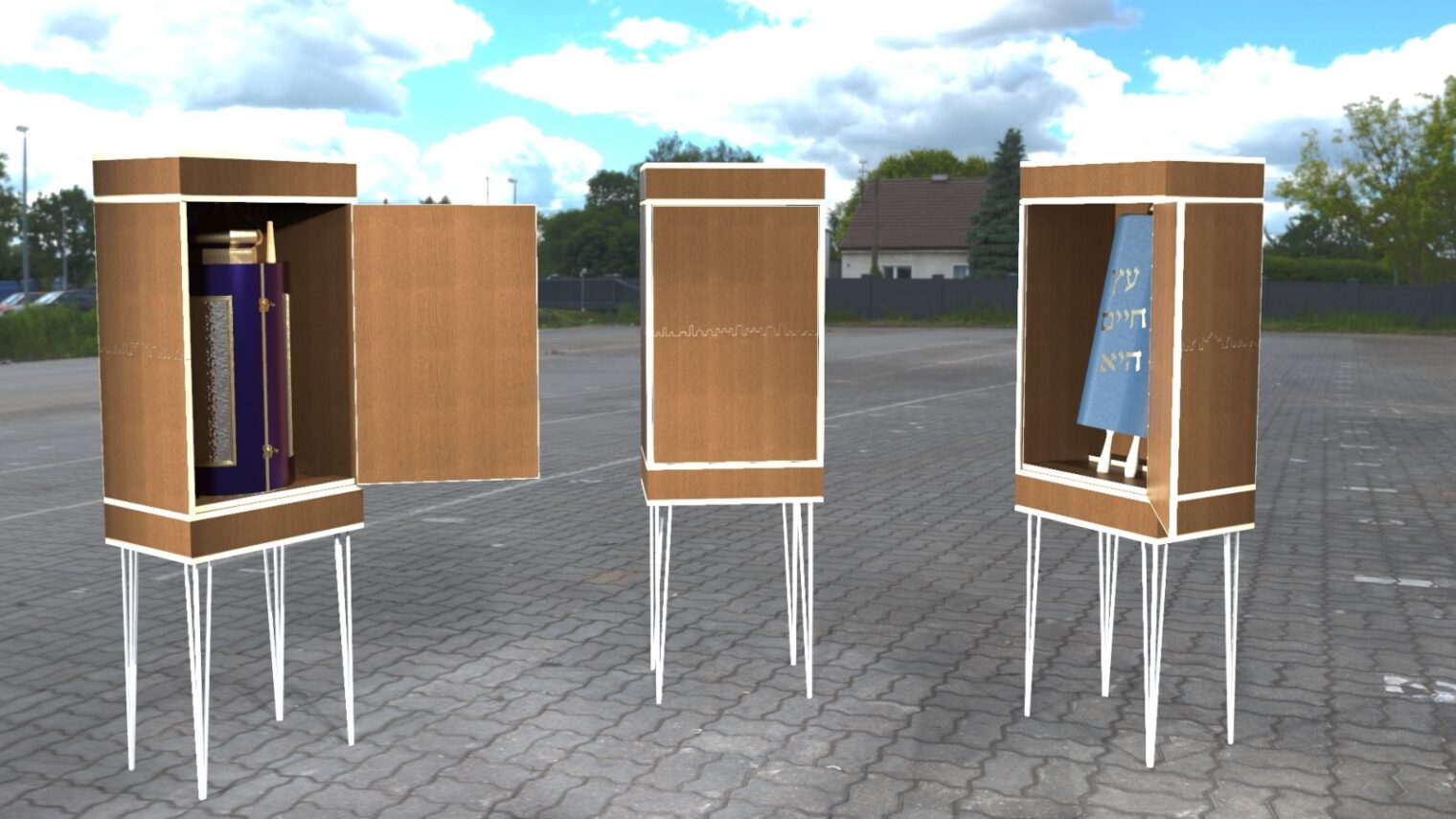With synagogues shut, a kibbutz has started working on a solution for the new world of cyber-prayer: a home ark for rabbis to use in their webcam services.
Despite everything, a handful of workers on Kibbutz Lavi in the Galilee are going to their synagogue furniture factory every morning.
They are used to making vast pews and Torah arks, but instead they are making tiny arks tailored specially for services held on Zoom.
Congregations are ordering them so their rabbi can take a single Torah scroll from their shuttered synagogues, keep it at home, and read to the congregation.
“We see a special sense of mission in this,” explains Aner Amiram, vice president at Lavi Furniture Industries.
“After all, it’s said that Jewish people don’t go for three days without reading from the Torah, but today many Torah scrolls are shut in closed synagogues, unread.
“It makes us really happy to produce special arks so that people could take some of them home and use them within the limitations of coronavirus rules.”
Ready for post-corona worship

The world’s biggest manufacturer of synagogue furniture, Lavi Furniture Industries is now restricting the shop floor to members of the kibbutz, meaning most of the workforce can’t show up.
But in the days before Israel went into almost complete lockdown, the full staff entered overdrive mode for the sake of Jewish communities around the world.
They sawed and chiseled; hammered in nails and straightened hinges.
“Synagogue life in much of the world has stopped, and we’re determined to ensure that when it restarts, it’s stronger than ever,” explains Amiram.
Every year, he is inundated with orders from new communities that want to open their doors at Passover— but this year, health restrictions mean that all synagogue dedications are on hold.
“As soon as the coronavirus crisis started, we said to ourselves that we’ll ensure no community waits a single day longer than necessary once this is over to open,” he said. “And to do that, we had a race on our hands.”

As Israel’s restrictions started in mid-March, it became clear the rules would be intensified and the factory would lose most of its staff for an unspecified period, so Lavi’s 85 workers pulled out all of the stops to get every single order finished.
They completed shipments for France, Switzerland, America, Israel and elsewhere. It got harder as restrictions became tighter. In the final few days when the factory was fully functioning, there were strict limits on how many workers could be in the factory at a time.

“We normally begin work at 7am, but we started opening the factory at 4am instead, so that we could get staff to do different shifts,” said Amiram. “I have never seen people work so fast — we got more finished than I ever thought possible.”
He added: “We all feel that Jewish communities have taken a hard enough blow by having to stop services due to coronavirus. We wanted to show them we care by getting their furniture shipped and having it in place so as soon so they can meet again, we’ll see new communities opening their doors.
“We’ll actually see the end of this crisis bring a spate of synagogue openings, with will be a remarkable way for the Jewish world to move forward.”
Evyatar Dor, Lavi’s international sales manager, said: “We believe, as Jews, that the good times will come and we’re determined that when they do, nothing at all will hold back communities.”
Nathan Jeffay is a journalist, and a member of a family of carpenters.













